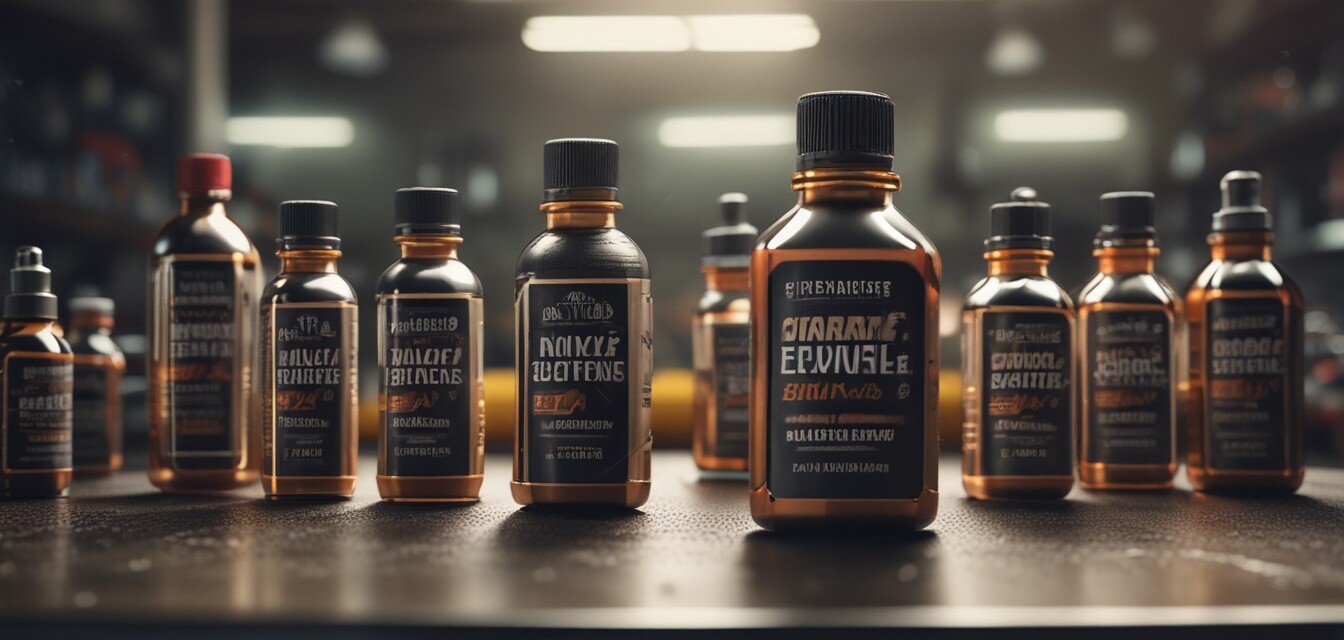
Car Performance Oils and Lubricants
- Performance oils enhance engine efficiency and longevity.
- Different lubricants cater to various driving conditions.
- Regular oil changes are crucial for maintaining peak performance.
- Understanding viscosity ratings helps in selecting the right oil.
- Quality lubricants reduce friction and wear, extending engine life.
Maintaining the peak performance of your car involves more than just regular maintenance; it requires a keen understanding of the oils and lubricants that keep your engine running smoothly. In this guide, we will explore the various types of performance oils and lubricants, their benefits, and how to choose the right products for your vehicle. Whether you're a racing enthusiast or simply want to improve your daily driver, this information is essential for keeping your car in top shape.
Why Are Performance Oils Important?
Performance oils are specially formulated to provide better lubrication, reduce friction, and enhance engine efficiency. They play a critical role in maintaining the health of your engine, leading to improved power output, better fuel efficiency, and a longer lifespan for your vehicle. Here are some key benefits:
- Improved Engine Efficiency: High-performance oils reduce internal friction, allowing your engine to work more efficiently.
- Extended Engine Life: Quality lubricants minimize wear and tear on engine components.
- Better Temperature Regulation: Performance oils help maintain optimal operating temperatures.
- Enhanced Fuel Economy: Reduced friction translates to better fuel efficiency.
Types of Performance Oils
Performance oils come in various types, each designed to meet specific needs. Below is an overview of the most common types of oils used in high-performance vehicles:
| Type of Oil | Description | Best For |
|---|---|---|
| Synthetic Oil | Man-made oils designed for high performance and extreme conditions. | Racing, high-performance engines |
| Conventional Oil | Traditional oil refined from crude oil. | Everyday driving |
| High Mileage Oil | Formulated for vehicles with over 75,000 miles to reduce oil consumption. | Older vehicles |
| Diesel Oil | Designed for diesel engines, providing better protection against soot. | Diesel vehicles |
Understanding Viscosity Ratings
The viscosity rating of oil indicates how thick or thin it is at certain temperatures. This is crucial for ensuring proper lubrication in your engine. Here’s a breakdown of what the numbers mean:
- The first number (e.g., 5W) indicates the oil’s viscosity at cold temperatures.
- The second number (e.g., 30) indicates the oil’s viscosity at high temperatures.
- A lower first number means better performance in cold weather.
- A higher second number means better performance at high temperatures.
Lubricants for Other Vehicle Components
While engine oil is essential, other lubricants are equally important for maintaining your vehicle’s performance. Here are some key lubricants to consider:
| Type of Lubricant | Use |
|---|---|
| Transmission Fluid | Essential for smooth shifting and transmission health. |
| Brake Fluid | Maintains braking efficiency and safety. |
| Power Steering Fluid | Ensures smooth steering and maneuverability. |
| Grease | Used in bearings, joints, and other moving parts. |
How to Choose the Right Oil and Lubricants
Selecting the right oil and lubricants for your vehicle involves considering several factors:
- Vehicle Type: Different vehicles require different oils based on engine type and age.
- Driving Conditions: Consider your typical driving conditions, such as temperature and terrain.
- Manufacturer Recommendations: Always refer to your vehicle’s owner manual for recommended oil specifications.
- Brand Reputation: Choose reputable brands known for high-quality products.
When to Change Your Oil
Regular oil changes are crucial for maintaining your vehicle's performance. Here are some guidelines:
- Every 3,000 to 5,000 miles for conventional oils.
- Every 7,500 to 10,000 miles for synthetic oils.
- Check your oil level and quality regularly, especially before long trips.
Storing Oils and Lubricants
Proper storage of oils and lubricants is essential to maintain their effectiveness. Here are some tips:
- Keep oils in a cool, dry place away from direct sunlight.
- Seal containers tightly to prevent contamination.
- Store lubricants upright to avoid leaks.

Conclusion
Understanding the importance of performance oils and lubricants is vital for any car enthusiast. By choosing the right products and following proper maintenance guidelines, you can ensure your vehicle operates at its best. Regular oil changes, combined with quality lubricants, will help extend your engine's life and enhance overall performance.
Pros
- Enhances engine performance and efficiency
- Extends the lifespan of engine components
- Improves fuel economy
- Reduces environmental impact
Cons
- Higher cost compared to conventional oils
- Needs regular maintenance and monitoring
- Potential for misuse if not chosen correctly
Tips for Beginners
- Always check your owner’s manual for recommended oil types.
- Invest in a good set of tools for oil changes.
- Join online forums or local clubs for car enthusiasts to learn more.
- Don’t hesitate to consult professionals if unsure.
For more information on related products, visit our other sections:
- Cleaning Accessories
- Detailing Kits
- Interior Enhancements
- Performance Enhancers
- Protective Coatings
- Tire and Wheel Care










